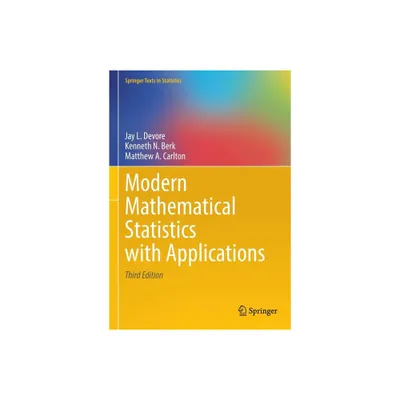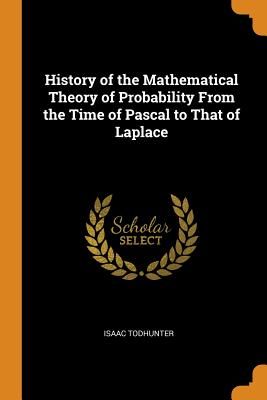Home
Classic Topics on the History of Modern Mathematical Statistics: From Laplace to More Recent Times / Edition 1
Loading Inventory...
Barnes and Noble
Classic Topics on the History of Modern Mathematical Statistics: From Laplace to More Recent Times / Edition 1
Current price: $144.95


Barnes and Noble
Classic Topics on the History of Modern Mathematical Statistics: From Laplace to More Recent Times / Edition 1
Current price: $144.95
Loading Inventory...
Size: OS
*Product Information may vary - to confirm product availability, pricing, and additional information please contact Barnes and Noble
"There is nothing like it on the market...no others are as encyclopedic...the writing is exemplary: simple, direct, and competent."—George W. Cobb, Professor Emeritus of Mathematics and Statistics, Mount Holyoke College
Written in a direct and clear manner,
Classic Topics on the History of Modern Mathematical Statistics: From Laplace to More Recent Times
presents a comprehensive guide to the history of mathematical statistics and details the major results and crucial developments over a 200-year period. Presented in chronological order, the book features an account of the classical and modern works that are essential to understanding the applications of mathematical statistics.
Divided into three parts, the book begins with extensive coverage of the probabilistic works of Laplace, who laid much of the foundations of later developments in statistical theory. Subsequently, the second part introduces 20th century statistical developments including work from Karl Pearson, Student, Fisher, and Neyman. Lastly, the author addresses post-Fisherian developments.
also features:
A detailed account of Galton's discovery of regression and correlation as well as the subsequent development of Karl Pearson's X
2
and Student's
t
A comprehensive treatment of the permeating influence of Fisher in all aspects of modern statistics beginning with his work in 1912
Significant coverage of Neyman–Pearson theory, which includes a discussion of the differences to Fisher’s works
Discussions on key historical developments as well as the various disagreements, contrasting information, and alternative theories in the history of modern mathematical statistics in an effort to provide a thorough historical treatment
is an excellent reference for academicians with a mathematical background who are teaching or studying the history or philosophical controversies of mathematics and statistics. The book is also a useful guide for readers with a general interest in statistical inference.
Written in a direct and clear manner,
Classic Topics on the History of Modern Mathematical Statistics: From Laplace to More Recent Times
presents a comprehensive guide to the history of mathematical statistics and details the major results and crucial developments over a 200-year period. Presented in chronological order, the book features an account of the classical and modern works that are essential to understanding the applications of mathematical statistics.
Divided into three parts, the book begins with extensive coverage of the probabilistic works of Laplace, who laid much of the foundations of later developments in statistical theory. Subsequently, the second part introduces 20th century statistical developments including work from Karl Pearson, Student, Fisher, and Neyman. Lastly, the author addresses post-Fisherian developments.
also features:
A detailed account of Galton's discovery of regression and correlation as well as the subsequent development of Karl Pearson's X
2
and Student's
t
A comprehensive treatment of the permeating influence of Fisher in all aspects of modern statistics beginning with his work in 1912
Significant coverage of Neyman–Pearson theory, which includes a discussion of the differences to Fisher’s works
Discussions on key historical developments as well as the various disagreements, contrasting information, and alternative theories in the history of modern mathematical statistics in an effort to provide a thorough historical treatment
is an excellent reference for academicians with a mathematical background who are teaching or studying the history or philosophical controversies of mathematics and statistics. The book is also a useful guide for readers with a general interest in statistical inference.















